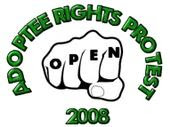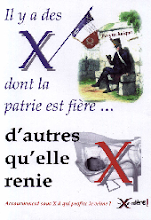 ASBURY PARK PRESS
ASBURY PARK PRESSMarch 16, 2008
Adoptees back action by legislators for right to learn who they are
By PEGGI STURMFELS March 16, 2008
Our state legislators are considering legislation to restore to more than 150,000 citizens their right to know who they are. Adoptees over the age of 18 would have access to their original birth certificate, or access to their family history, including medical, cultural and social information.
As these deliberations take place, I would ask that the legislators take a moment to see a moment (or many moments) of my life. Sometimes it is a seemingly benign comment. At a lively discussion with a group of friends, one member decries what the "bastards" did. While others laughed, I cringed a little. Bastard was the offensive word and bastard is what I am.
I have lived for more than half a century in a world that defines me as less than — or must prove myself as worthy of personage as — my friends, my neighbors, strangers and my family.
Our culture diminishes adopted children in many subtle ways most folks don't even think about. In words and laws, adoptees have been thrown into a caste system that encourages secrecy and shame. And somehow we have allowed the children who have had no say in the causative circumstance or the behavior to be the bearers of that secrecy and shame.
For centuries, bastard children could not inherit from their biological parent, unless that parent acknowledged them. That acknowledgment often happened by adoption. Then and even today, adopted children have to be specifically acknowledged in some wills.
"Orphans" are thought of as poor souls, conjuring up images of Oliver Twist, malnourished children and rat-infested living quarters. Adoption became a way of rescuing them. But with the rescue, we often put upon them the burden of showing they are worthy of that effort.
We feel that they should be grateful for the chance of being adopted. And we question the appropriateness of their behavior should they ask the questions that all people have a birthright of knowing the answers to.
Have you sat with your kids, looking through the family album or old pictures, telling them the stories of their history? The stories passed down through generations that completes their legacy and gives them a past to build their future.
I've got that, too. But the nagging truth is that mine is borrowed. So who am I really? The agency said I was the shame of a one-night stand. I preferred my version of the love child of two people torn apart by circumstance and time. Newfound family members share different facts that bear no resemblance to the ones my adoptive parents were told.
Critics of these bills talk about a presumed pact made with birth mothers to protect them from public scrutiny.
But who protected the children from public ridicule? Who went and stood beside the children in the school yards as kids taunted them, telling them that something was so horrible about them that their own mothers didn't want them?
Who benefited from the incomplete grade received on the seventh grade science project requiring students to trace their family tree? What pact held these kids in their arms at family reunion gatherings that made them outsiders? What regulation explained away the fear and hurt of hearing your cousins being referred to as the "real grandchildren" by your grandmother?
What document gave comfort or support every time a doctor asked about family medical history and the answer is always "I don't know"? And who was served when polite people and the state decided that bastards were to be labeled illegitimate.
Protecting the privacy of one family so often abused the everyday living of the child given away. And their family, too.
Tell me what day you were born? Me? On or about Dec. 10, no one is sure. Tell me what ethnic background you claim? Me? I've been told either Irish or Scottish, maybe some English. Recently, I might be Swedish.
When did you take your first step? What were your first words? Where did you spend the first three years of your life? Whose eyes do you have? Whose smile? Nose? Me? Again, nothing.
One of my quirky little "adoption" phobias? I refused to date anyone with red hair, because I was afraid he might be my brother.
How was your parents' health? Arthritis, strokes, breast cancer, Alzheimer's, etc.? And your children, who do they look like? Do they have a heart condition? Hearing loss? Kidney disease? Allergies and asthma?
And their children, a new generation now faced with having to have genetic testing because there are no answers to basic questions. My decades-long search for answers has revealed half-sisters and half-brothers, cousins, aunts and uncles and stories that didn't match the agency's "unidentifying" information. But only possibly — because absent my birth certificate — there is no verification, no certainty that I belong to these people.
Let me say one more thing about this need to protect the birth mothers, or the adoptive mothers from this horrible secret pain (their child) that they have had to endure. As a mother, both biological and adoptive, it is my obligation to do everything I can to ensure the emotional health of my child. When my daughter needed to find answers, my husband and I did whatever was needed to help her make that journey, even though we were frightened by what she might find.
Passage of open records for adoptees will restore to hundreds of adoptees in New Jersey and their families the basic human right to know who they are. It's what you've known all along. Why can't we?
Peggi Sturmfels, Jackson, is a member of NJCARES, a network of volunteers, donors, service groups and charities.
Direct link won't work. Try Link to article








No comments:
Post a Comment